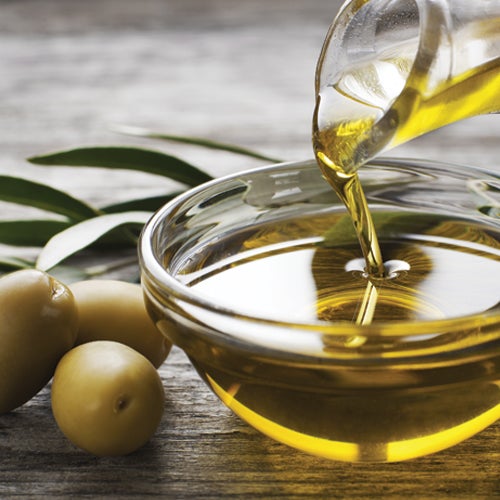Is It Safe to Cook with Extra-Virgin Olive Oil?

Eat clean and get lean with our dietitians, Erin Macdonald and Tiffani Bachus. Find out when their new course, A Whole-Life Guide to Lasting Weight Loss, launches. Register now!
It all depends on the quality of extra-virgin olive oil (EVOO) you’re buying. All oils have a smoke point – the temperature at which the oil begins to smoke and break down. High-quality EVOO – the kind chefs use in restaurants – has a medium smoke point. Since the average stove top reaches about 266 ̊F to 293 ̊F when heated on medium, it’s completely safe to cook with EVOO on that heat. That being said, this is not true of the EVOO commonly found on supermarket shelves for $10 to $15 a bottle. Those oils are generally processed through poor extraction methods, which results in a harmful breakdown of fat chains into free fatty acids, or fats that are not connected to a chain. These free fatty acids decrease the smoke point of EVOO significantly, making it unable to withstand stove-top heat above low. At Clean Eating, we encourage you to opt for EVOO, since it is less processed and therefore higher in nutrients than the more heat-stable regular olive oil; however, unless you’re willing to invest in the high-quality stuff, it’s best to reserve EVOO for low-heat cooking or in cold salad dressings and dips.
See alsoThe Best (And Worst) Cooking Oils For Healthy Fat.
—
Registered dietitians Tiffani Bachus and Erin Macdonald are the co-founders and creators of URockGirl.com, a website dedicated to promoting wellness and a healthy, balanced lifestyle.